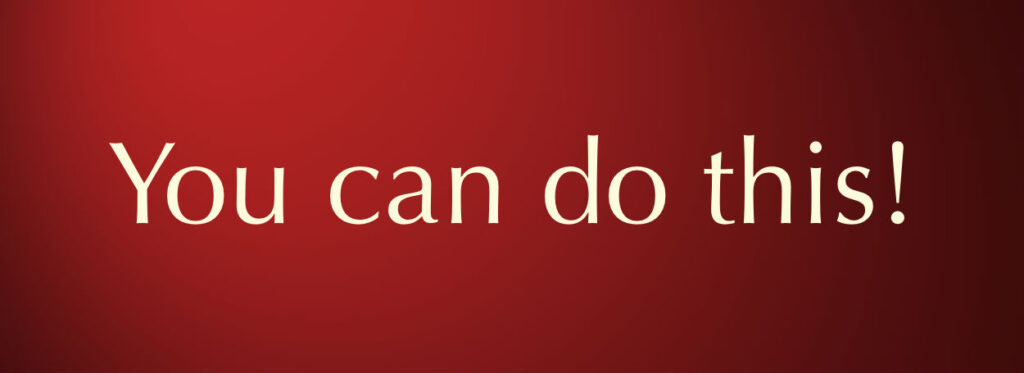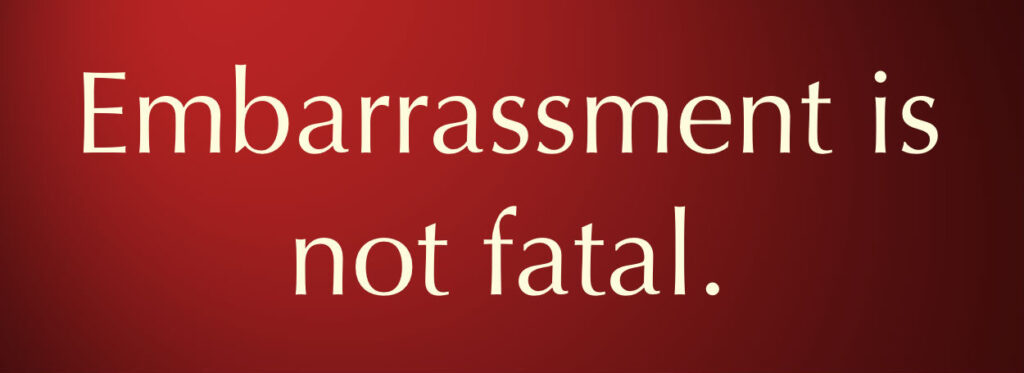[This article also exists in podcast form, on Pondering Purple. Click HERE to listen or find it on your usual podcast platform.]

Many eons ago, I walked onto the Wheaton College campus for the first time. Everything felt hugely new. New culture, new way of life, new educational system, new homework load, new roommate… New everything.
And I was not prepared for all the newness. I’d said goodbye to my other universe just a couple months before and, to be honest, I was still neck-deep in grief over having lost friends who knew me. A geographical world that made sense to me. A deep-rooted belonging in people and places, customs, languages, savors and sounds.
But there I was on Wheaton’s campus. I hadn’t chosen the college with any degree of excitement. I knew about its reputation and its academic standards. I liked its historic buildings. And that was about it. Yet it was supposed to become home to me, whether I wanted it to or not, because it was where I’d put down my well-traveled luggage and paid my fees.
In retrospect, I wish I’d invested a little more thought and energy into finding my place there. But I didn’t—and because I had no desire to put even a small amount of effort into it, I lived as an island for the 3 ½ years it took me to graduate. I was like a plant suspended in midair while my dangling roots shriveled and dried up. As a result, I walked away a few years later with little more than a degree in hand.
It doesn’t have to be that way.
There were no resources to help with that kind of transition back then, but there are now. And my hope is that this article will answer some of your most pressing questions as you move from one world to another—whether it be for education, your career or just a change of location.
This is the second installment in my three-part series on transition. If you haven’t read Part One—about preparing to end well—you may want do that before reading this one. Or not…it’s a free country! Then come back in a couple weeks for the final episode, this one devoted to intentional mindsets that can transform our adaptation to new places.

Ask adult TCKs about the most challenging transition of their lives, and they’ll most likely say, “College” or “University.”
It’s not surprising, really. Where most young people entering higher education have left their home and family in another part of the country, TCKs have often left their entire universe behind—the sights, sounds, savors, customs, languages, mentalities and belief systems of places that have little similarity and relevance in this new world.
This degree of loss, combined with the oddness of re-entering a “home” culture that feels somewhat foreign, can create an emotional-cultural-and-transitional Perfect Storm.
It will only be successfully navigated with proper strategy and intention. I’ll outline ten tips below that may help with transition. (Consider this the condensed version of my usual two-hour session on this topic!)
- Submit to the process
It’s going to ebb and flow. One minute you’ll feel like you own this transition and the next you’ll feel like you’ve made no headway at all. There’s no avoiding the stop-and-go, and our healthiest posture is to expect it and accept it.
The same goes for those unavoidable faux-pas or social mistakes. As TCKs, we want to avoid failure and embarrassment. After all, we pride ourselves in our cultural savvy, right?
But there’s no such thing as a flawless transition.
This is particularly true when crossing several “borders” at the same time (like cultures, educational styles, independent living, financial autonomy…). It’s going to be messy and it’s going to take a while.
Be patient with yourself and give the process the time it requires.
Allow yourself to fail. One small misstep doesn’t mean you’re doomed—it means you’re trying and learning. Acknowledge and celebrate your successes. And give yourself grace for the inevitable mistakes. Both are part of the process.
- Use your cross-cultural skills
If you were dropped into a primitive tribe in the Amazonian jungle, you’d find a way to weave yourself into its culture. After all, you’re a TCK. You’d overlook the “jarring” and invest your effort in understanding the whys and hows that make the culture tick.
Do the same with this new world—even if it isn’t entirely new to you.. Enter it as if it were an exotic foreign land, using all the cross-cultural skills you’ve developed in your international life.
Ask questions, show mercy, be accepting—as you would be if entering that primitive tribe—and put particular effort into those if this is your passport culture you’re entering. (I’ve got to say that as tolerant as TCKs are, we reserve a special kind of reluctance for our “home” country.) Be inquisitive and adventurous, open-minded and forgiving, just as you would be with any other place. Analyze, adjust and adapt.
- Know and respect this culture’s values
Some of what the new culture values may feel fake to you. It may feel intrusive or even offensive.
There will be aspects of this place that you won’t like, values you will deem misguided or demeaning. Remember this: a culture is designed for those who belong in it to feel comfortable. Initially at least, you’re really just a visitor—not the person for whom the culture is designed.
So recognize its values for what they are and determine how you
will intentionally respond to them.
Some of the values can be acquired—like manners, social norms and communication styles. Others, like religious zeal and hierarchical structures, may just need to be respected.
Honoring what is “normal” in your new culture will likely make connecting easier and faster.
- Be aware of relational differences
This is perhaps the most frustrating aspect of adaptation for TCKs—and I devoted an entire article to that topic. Here’s the main thing:
TCKs dive deep extremely fast and people living in a single culture tend to dive more shallowly and slowly. It doesn’t mean that you can’t get to real, meaningful friendship. It just means that it’s going to take more time and patience to get there. Believe me when I tell you that the wait is worth it.
Once we realize how much our relational differences influence our interactions, many of our frustrations in transition will at the very least lessen, because we’ll understand that what we’ve been labeling as “shallow” is just people doing things the way this culture does them. True friendship is possible in mono-cultural settings. We just need to be willing to get there differently.
- Find a trusted Cultural Coach
You’re going to need to ask some stupid questions. There’s just no way around it. As you’re making friends and connecting with people, try to figure out who might be a good person to answer those queries.
How do you order at complicated restaurant? (I used to break out in hives at Subway.) What purpose do cheerleaders serve? What’s a gallon in liters? Do you tip and if so how much? Can you pass on the right? What is a date in this country and what should I do and not do when I’m on one?
Here are some traits of a good Cultural Coach.
- Understands that you’re foreign in some ways
- Knows more about the culture than you do
- Will laugh with you—not at you
You may need different coaches for different areas of your life. Having them in place early will allow you to figure things out more quickly, and without unnecessary embarrassment.
- Laugh at yourself
Seriously. Even with a stable of Cultural Coaches reachable on demand, you’re going to mess up. Laughing at yourself is a hugely important skill.
It’s our fear of doing something wrong that keeps us on edge—cautious and nervous about jumping in.
Ridicule won’t kill you. Believe me—I know! Being looked at weirdly won’t either.
So if you mispronounce an Indian dish, accidentally sign up for your 9th credit card or discover that jay walking really is a ticket-able offense, laugh at yourself. (Then pay the fine!)
- Reject generalizations
Red-flag any statement about the culture you’re entering that begins with “All [inhabitants of this culture] are—” They’re all clueless. They’re all materialistic. They’re all shallow. They’re all fat. They’re all socially inept.
Nothing sets a person up for transitional failure more than a condescending attitude. Arrogance, even just perceived, is the most alienating of traits.
But if you give the new people around you a chance—one by one, not as a whole culture—you may find individuals who are exactly the friends you’ve been looking for. They may not have experienced all you have. They may not speak the languages you do. That’s okay. You may not relate entirely to their lives either. Relationship can transcend those differences.
Discarding toxic generalizations creates space to be surprised by friendship.
- Initiate—or at least make yourself available
Transition is exhausting and socializing can feel like just one more chore to cram into your day. I really encourage you—as much as you have it, to invest your energy in connection. Again, it’s one of those priorities that might not feel comfortable at the time, but that will pay off in the long run…because we’re wired for relationships and we tend to shrivel up a bit without them.
If you, like me, are a raging introvert, I get that this encouragement might feel overwhelming.
Here’s an alternative to initiating for my less social friends: put yourself in places where people can see you and give them the chance to initiate with you.
Sit in the lounge of your residence floor and look up from your book or Insta-scrolling when people walk by. Sit in the bleachers during volleyball games. Don’t find the most remote table in the cafeteria and hide there. Whenever possible—in classes, in hallways, on sidewalks, at the gym, wherever—make eye contact and smile if these people you’re seeing are part of your community.
By doing so, you’re setting yourself up for one of two things to happen. Either someone will smile back and initiate a conversation. Or you might eventually build up the courage to actually say a few words that turn into a conversation.
- Acknowledge and address your grief
It is hard to leave one world and enter another. Where mono-cultural peers might be leaving their families and home towns as they enter a new educational institution or career environment, a TCK is typically leaving much more. It’s the Universe I referenced at the beginning of this article.
We miss more intensely. We long in a more visceral way because we haven’t just lost a location, we’ve lost what feels like everything—the places and communities that defined us seem as distant as the stars…so does the person we used to be when we lived in those worlds.
Like transition, grief is a process. Like transition, it will ebb and flow.
Like transition, there’s no hurrying or avoiding it.
Admit grief to yourself and explore resources—like my previous article on Living Well in a Season of Grief. Then find someone to whom you can express it. The health of your Present depends on how healthily you process what you’ve lost.
- Exercise gratitude
Few other disciplines carry the same ability to transform your life! Ann Voskamp (author of “One Thousand Gifts”) did some research into the subject and found that people who focus on gratitude –
- Have a relative absence of stress and depression. (Woods et al., 2008)
- Make progress towards important personal goals (Emmons and McCullough, 2003)
- Report higher levels of determination and energy (Emmons and McCullough, 2003)
- Feel closer in their relationships and desire to build stronger relationships (Algoe and Haidt, 2009)
- Increase their happiness by 25% (McCullough et al., 2002) However you measure that…
My advice? Get a notebook or journal that you’ll keep by your bed. Every night (every night), take a few minutes to write down three things for which you’re grateful. At least one of them needs to be something that happened that day.
Because the negatives of life have a way of leaping up and smacking us in the face, it’s important to counter them with a determined effort to see the positives.
As simple as it seems, this small exercise has the potential to substantially enhance your transition…and your life.

Transition is not for the faint of heart. There’s just so much to navigate, but there’s also so much to be gained from doing it thoughtfully. I did it all wrong the first time—when I was just starting college—and I wish I could go back and give myself the gift of doing it better.
If you’re a TCK transitioning right now, my hope for you is that the wealth of resources available will help you to thoughtfully and intentionally get over some of the bigger hurdles, so you can enter your new world with fewer regrets and brighter victories.
Please join the conversation!
- Contribute your thoughts in the comments section below
- Use the social media links to Like and Share this article
- Many of these articles are now available in podcast form. Simply search for “Pondering Purple” on your usual pod platforms, or click this link to be taken to its host page.
- To subscribe to this blog, email michelesblog@gmail.com and write “subscribe” in the subject line
- Pick up Of Stillness and Storm (my novel about a missionary calling gone awry) on Amazon




